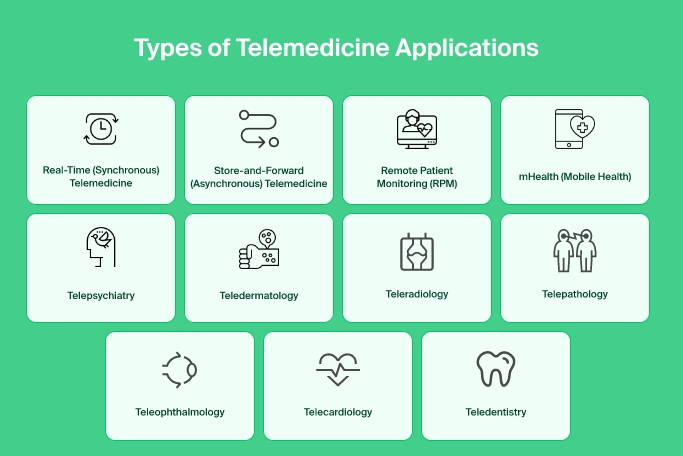Telehealth has revolutionized the way healthcare is delivered, making it more convenient and accessible for patients. There are different types of telehealth services available, each offering unique features and benefits. It’s important to understand these options to choose the right one for your healthcare needs.
1. Telemedicine:
Telemedicine involves virtual consultations with healthcare providers for diagnosis and treatment of medical conditions. This can include video calls, phone calls, or messaging through a secure platform. It is suitable for non-emergency issues and follow-up appointments.
2. Remote Monitoring:
Remote monitoring allows healthcare providers to track patients’ vital signs and symptoms from a distance. This is especially beneficial for managing chronic conditions such as diabetes or hypertension. Devices like wearable fitness trackers or blood pressure monitors can be used to collect data and transmit it to healthcare providers.
3. Store-and-Forward:
Store-and-forward telehealth involves sharing medical images, test results, or other health information electronically for review by healthcare providers at a later time. This can be useful for obtaining second opinions, collaborating with specialists, or monitoring progress over time.
4. Mobile Health (mHealth):
Mobile health apps allow patients to access healthcare services, track their health data, and communicate with healthcare providers through their smartphones or tablets. These apps can provide educational resources, medication reminders, and teleconsultations for convenience and personalized care.
5. Telebehavioral Health:
Telebehavioral health services focus on mental health support through virtual therapy sessions with psychologists or psychiatrists. This can be particularly helpful for individuals who may have difficulty accessing traditional in-person therapy or prefer the convenience of online sessions.
In conclusion, the different types of telehealth services offer a range of options for patients to receive healthcare remotely. It’s important to consider your specific healthcare needs and preferences when choosing the right telehealth option for you. Whether it’s telemedicine for quick consultations, remote monitoring for chronic condition management, or mobile health apps for personalized care, telehealth can provide convenient and effective healthcare solutions.

